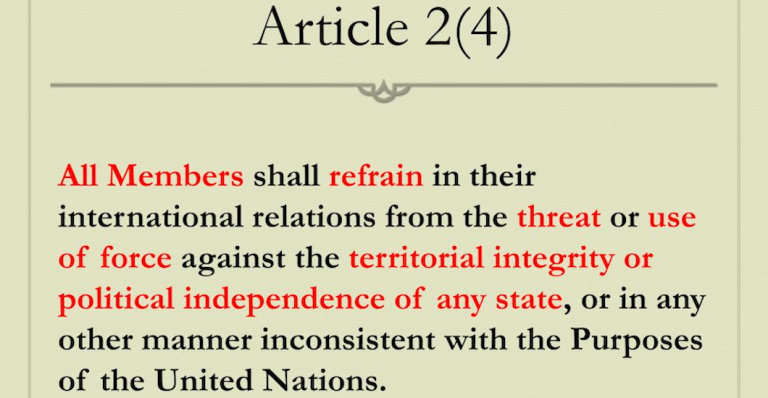
Legal experts say preemptive attacks breach U.N. Charter amid growing pressure on Netanyahu: Article 51 of the U.N. Charter permits self-defense only in response to an actual armed attack, not perceived or potential threats.
New York, N.Y. – Israel‘s recent preemptive strikes against Iran have drawn sharp criticism from international law experts, who argue the attacks violate fundamental principles of the United Nations Charter and could constitute unlawful killings under humanitarian law.
The Friday airstrikes, which targeted Iranian military commanders and nuclear facilities, resulted in the deaths of several high-ranking officials including Chief Commander of Iran’s Islamic Revolution Guards Corps Hossein Salami and Gholam-Ali Rashid, commander of Iran’s Khatam al-Anbiya Central Headquarters. Two Iranian nuclear scientists were also killed in the attacks, according to Xinhua News Agency.
Legal Experts Question Self-Defense Claims

Ahmad Ghouri, an associate professor at the School of Law, Politics and Sociology at the University of Sussex in the United Kingdom, told China Daily that Israel’s actions breach Article 2(4) of the U.N. Charter, which prohibits the use of force against the territorial integrity or political independence of any state.
“From this perspective, Israel’s military actions — including attacks on Iranian nuclear facilities and the targeted killing of nuclear scientists — constitute an unlawful use of force,” said Ghouri, who also serves as senior counsel at Albertson Solicitors in London.
The Israel Defense Forces (IDF) justified the strikes in a statement, claiming “Iran is closer than ever to obtaining a nuclear weapon” and describing weapons of mass destruction in Iranian hands as “an existential threat to the State of Israel and a significant threat to the wider world.”
Anticipatory Self-Defense Falls Short of Legal Standards

Ghouri emphasized that Article 51 of the U.N. Charter permits self-defense only in response to an actual armed attack, not perceived or potential threats. “
Therefore, Israel’s justification of anticipatory self-defense does not meet the legal threshold required under Article 51,” he explained.
The Caroline doctrine allows anticipatory self-defense when threats are instant and overwhelming, leaving no time for deliberation.
Experts argue Israel’s situation fails to meet these stringent criteria.
The threat from Iran was not immediate, and diplomatic channels had not been exhausted, according to legal analysts.
Targeting of Civilians Raises War Crimes Concerns
The deliberate targeting of nuclear scientists has raised particular concern among legal experts. Under international humanitarian law, such individuals are considered civilians unless they directly participate in hostilities. Their targeted killing could therefore constitute “unlawful killing,” according to Ghouri.
Abdalfatah Asqool, a former international law lecturer at the University of Palestine in the Gaza Strip, told China Daily that “no single instrument” in international law justifies Israel’s attacks on Iran. He described the self-defense justification as “ridiculous and meaningless.”
Political Motivations Behind Military Action
Experts suggest the strikes may be motivated more by domestic political pressures than legitimate security concerns. Asqool argued that Benjamin Netanyahu‘s decision to attack Iran serves to “escape the pressure on him because of the humanitarian crisis he caused in the Gaza Strip.”
The timing of the attacks has disrupted significant diplomatic initiatives, including the sixth round of nuclear negotiations scheduled to take place in Oman over the weekend and a U.N. conference on reviving the two-state solution for Israel and Palestinians set for Tuesday through Friday.

International Community’s Double Standards
Legal experts have criticized what they see as inconsistent application of international law. Asqool condemned countries that “rush to defend Israel and its actions” as “partners in violating the obvious basic rules of international law,” describing this as another example of “double standards” in international relations.
The strikes have highlighted ongoing tensions in the Middle East and raised questions about the effectiveness of international legal frameworks in preventing unilateral military action. As the international community grapples with the implications, the attacks underscore the complex intersection of security concerns, legal obligations, and political pressures in the region.
The incident serves as a stark reminder of the challenges facing international law enforcement and the need for consistent application of legal principles regardless of the parties involved. As diplomatic efforts remain stalled, the international community faces mounting pressure to address these violations and prevent further escalation in an already volatile region.
International law experts condemn Israel’s preemptive strikes on Iran as violations of U.N. Charter principles. The attacks, which killed Iranian military commanders and nuclear scientists, are seen as politically motivated attempts to relieve domestic pressure on Netanyahu rather than legitimate self-defense. Legal analysts argue the targeting of civilians could constitute unlawful killing under humanitarian law.